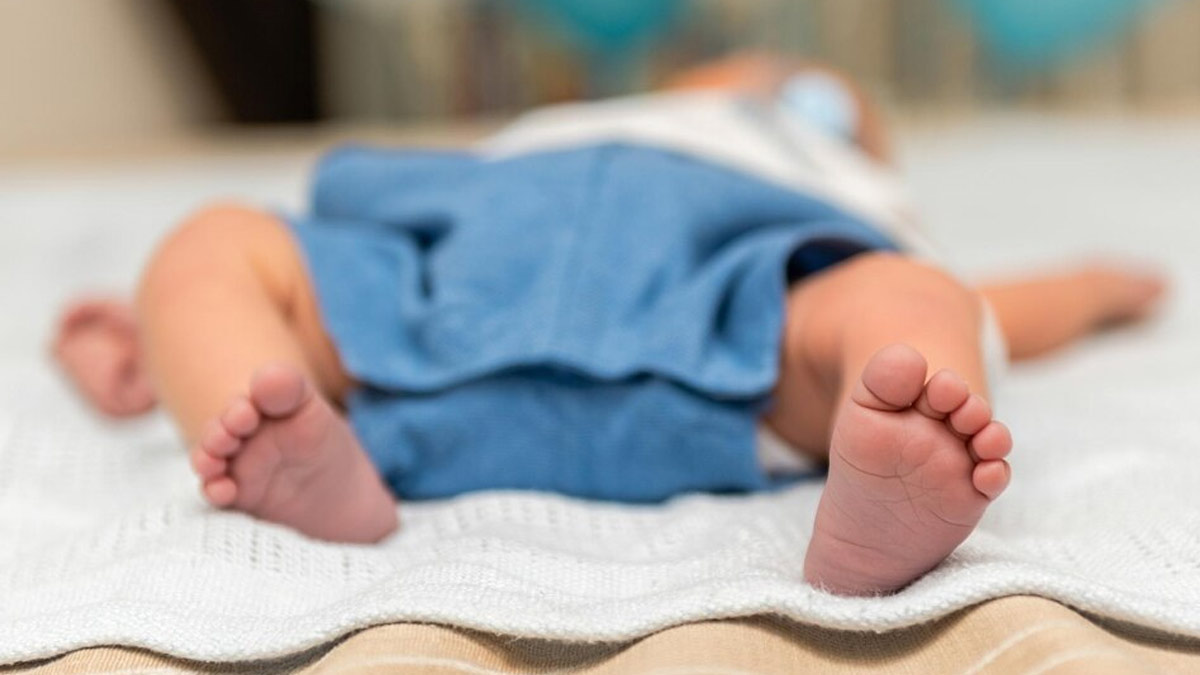
The cases of dengue in the country have been rising rapidly, raising an alarm for public health officials and healthcare providers. Dengue fever, caused by the dengue virus transmitted through Aedes mosquitoes, is a significant public health concern. It can lead to complications, such as shock, internal bleeding, organ failure, and even death. While much attention has been given to the disease’s impact on the general population, less focus has been placed on its effects on pregnant women and their newborns. One pressing question is whether contracting dengue during pregnancy can result in low birth weights for newborns. We spoke to our expert Dr Yogesh Jadhav, MD Gyanecology, Arogya Hospital, Baramati, Maharashtra, who shared insights on the same.
Table of Content:-
What Is Dengue Fever?

According to a 2016 study, dengue fever is a mosquito-borne viral disease that has swiftly spread to multiple regions in recent years. Symptoms of dengue fever include high-grade fever, headache, bleeding from the mouth and nose, muscle and joint pain, vomiting, rash, diarrhoea, gastrointestinal bleeding, altered consciousness, seizures, and itching.
"In severe cases, it can progress to Dengue Haemorrhagic Fever (DHF) or Dengue Shock Syndrome (DSS), which are life-threatening conditions. The dengue virus has four distinct serotypes, and a person can be infected with each serotype at different times, increasing the risk of severe disease upon subsequent infections", said Dr Jadhav.
According to the Centers for Disease Control and Prevention, up to 400 million people contract dengue annually, with around 100 million falling ill and 40,000 dying from severe cases.
Also Read: Dengue's Impact on Platelet Count and Expert Dietary Tips to Boost It
Dengue Fever and Pregnancy

"Pregnancy alters a woman's immune response, making her more susceptible to various infections, including dengue. Pregnant women with dengue fever may experience more severe symptoms and complications compared to non-pregnant individuals. The disease can potentially affect both the mother and the foetus, leading to concerns about adverse pregnancy outcomes", added Dr Jadhav.
Causes Of Low Birth Weight

The World Health Organization (WHO) defines low birth weight as a birth weight of less than 2500 grams (5.5 pounds). It is a critical indicator of infant health, linked to heightened risks of both neonatal and long-term health complications. Numerous factors contribute to low birth weight, such as maternal health, nutritional status, and environmental conditions. But how does dengue fever fit into this picture?
Maternal Health Complications
Dengue fever can lead to severe maternal complications, such as dehydration, haemorrhage, and organ dysfunction. These conditions can negatively affect foetal growth and development. For example, severe dengue can lead to placental insufficiency, where the placenta fails to deliver adequate nutrients and oxygen to the foetus, resulting in LBW.
Inflammatory Responses
"Dengue fever triggers a significant inflammatory response in the body. This inflammatory response can impact the placenta and interfere with normal foetal development. Inflammation can lead to changes in blood flow to the placenta and increase the risk of adverse outcomes, including LBW," said Dr Jadhav.
Also Read: Dengue Prevention During Monsoon: Essential Tips For Staying Safe
Nutritional Deficiencies
Dengue fever frequently leads to gastrointestinal symptoms, including nausea, vomiting, and loss of appetite. These symptoms can lead to poor nutritional intake during pregnancy, which is crucial for foetal growth. Malnutrition resulting from these symptoms can contribute to LBW.
Foetal Infection
While vertical transmission of dengue virus from mother to foetus is rare, it is possible. If the virus crosses the placenta, it can cause foetal infection, potentially leading to complications like preterm birth and LBW.
A comparative study revealed a higher incidence of low birth weight in infants born to women who contracted dengue during pregnancy compared to those born to non-infected women. Vertical transmission was reported in 64% of cases in case reports and 12.6% in case series.
Preventive Measures and Management

Preventing dengue fever is crucial for protecting pregnant women and their unborn children. Dr Jadhav listed some of the preventive measures as follows:
- Mosquito Control: Eliminate mosquito breeding sites, use insect repellent, and employ mosquito nets and screens.
- Monitoring and Early Detection: Pregnant women should be monitored for dengue symptoms and receive timely medical care if symptoms appear.
- Medical Management: In cases where dengue fever is diagnosed, careful management by healthcare professionals is essential to mitigate risks to both the mother and the foetus.
[Disclaimer: This article contains information provided by an expert and is for informational purposes only. Hence, we advise you to consult your own professional if you are dealing with any health issues to avoid complications.]
Also watch this video
Read Next
Urinary Stasis During Pregnancy: Expert Explains Its Symptoms, Diagnosis, And Treatment Measures
How we keep this article up to date:
We work with experts and keep a close eye on the latest in health and wellness. Whenever there is a new research or helpful information, we update our articles with accurate and useful advice.
Current Version